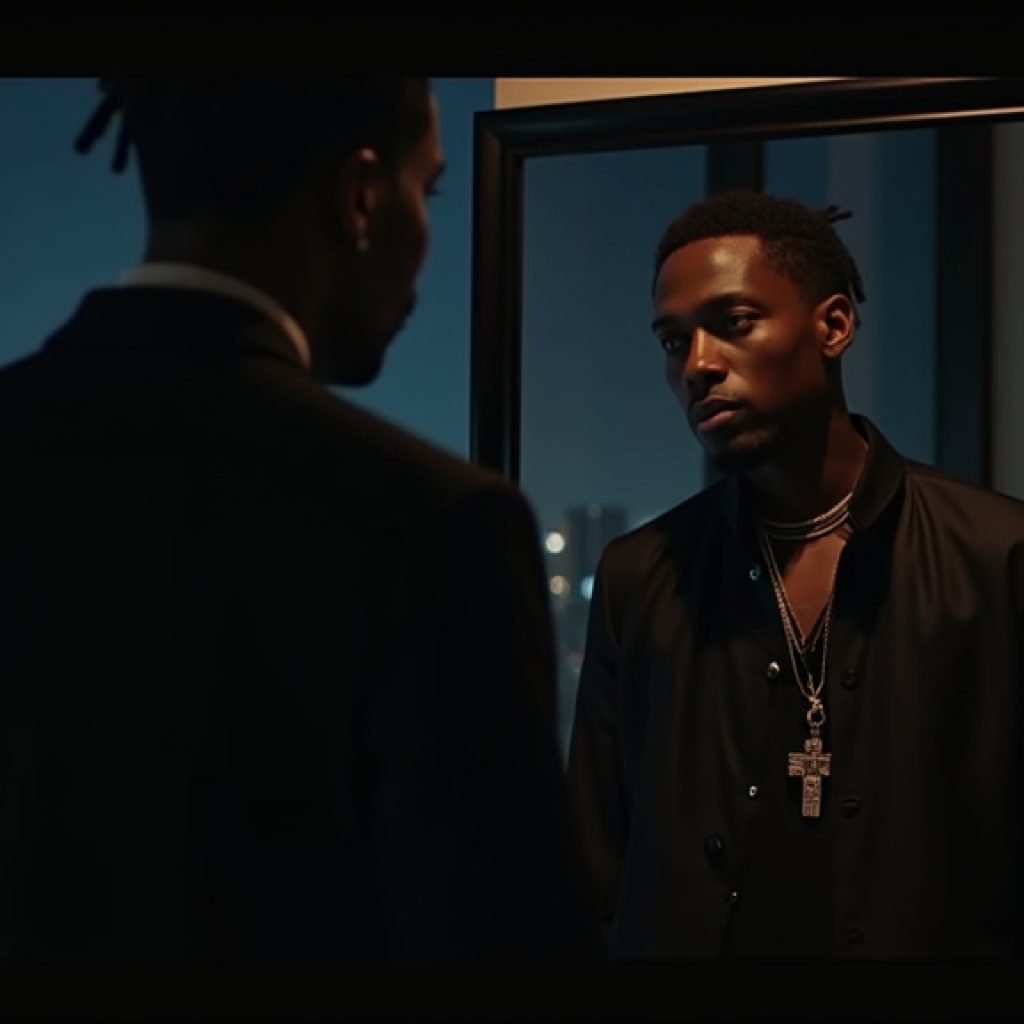In a candid moment that has resonated throughout the hip-hop community, veteran artist Fat Joe has revealed a deeply personal conflict: his enjoyment of Gunna’s latest album, “The Last Wun,” stands in stark contrast to his adherence to the industry’s unwritten code of loyalty.
A Podcast Confession Sparks Debate
During a recent episode of his popular podcast, “Joe and Jada,” alongside co-host Jadakiss, Fat Joe confessed to finding himself in a difficult position. He detailed how, during a lengthy flight, he played Gunna’s “The Last Wun” from beginning to end, without skipping a single track. The Bronx rapper admitted the album was compelling and that he genuinely enjoyed the music. However, this appreciation is fraught with internal turmoil, as Gunna is an artist Fat Joe perceives as having violated a sacred principle within hip-hop: loyalty.
“I played the whole album, front to back, without skipping,” Joe recounted, describing his initial engagement with the project. When pressed by Jadakiss, Joe acknowledged the artist behind the music, admitting that while the album bangs, his personal principles prevent him from publicly endorsing Gunna. This internal debate highlights a recurring theme in the culture: the tension between appreciating artistry and upholding ethical standards.
The “Rat” Label and the Hip-Hop Code
The crux of Fat Joe’s conflict lies in the perception surrounding Gunna, particularly his involvement in the YSL RICO case. Gunna entered an Alford plea, which allowed him to maintain his innocence while acknowledging the prosecution had sufficient evidence to convict him. Crucially, his legal proceedings involved statements that, in the eyes of many within the hip-hop world, equated to cooperation with authorities. This has led to him being labeled a “rat” or an informant, terms that carry significant weight and consequence in street culture and, by extension, in hip-hop.
Fat Joe articulated his unwavering stance on this matter, stating that “rats” are simply not acceptable. He believes the culture has shifted, lamenting a time when such actions would have had severe repercussions, transforming from a perceived career-ending move into something that appears, for some, to be a pathway to continued success. He cited figures like Tekashi 6ix9ine as examples of how the industry’s reaction to such behavior has evolved.
Personal Betrayal and Unshakeable Principles
Fat Joe’s strong feelings are rooted in personal experience. He shared a poignant anecdote from his past involving a close friend of 25 years who betrayed him after being caught by federal charges. This betrayal wasn’t just financial; it led to public confrontation and left a lasting scar on Joe. He recounted how Dominican dealers confronted him in a restaurant about his friend’s actions, forcing him to defend himself. The experience was so profound that he never reconnected with the friend, even when learning of his struggles. “Betrayal carries no second chances,” Joe reflected, underscoring the depth of his commitment to loyalty.
Jadakiss, in turn, challenged Joe’s stance, questioning the apparent contradiction of enjoying Gunna’s music while refusing to back him. Joe, however, remained steadfast, explaining that while he can appreciate the music, his principles and loyalty to the culture prevent him from giving the artist his full co-sign. This sets up a classic debate: can one separate the art from the artist when the artist’s actions conflict with deeply held cultural values?
Chart Success and Continued Controversy
Despite the controversy, Gunna’s music continues to dominate the charts. “The Last Wun,” released recently, has reportedly reached the number one spot on the Billboard Rap Charts, showcasing his enduring popularity and influence. This success fuels the ongoing discussion, with some fans prioritizing the music and its quality over the artist’s personal or legal entanglements. Gunna’s career trajectory, marked by chart-topping albums and continued demand, demonstrates a segment of the audience that is less concerned with the “code” Fat Joe champions.
The Enduring Conflict: Art vs. Artist
Fat Joe’s dilemma encapsulates a broader conversation happening within hip-hop and the wider entertainment industry: where does appreciation for art end and personal endorsement begin? For Joe, the line is drawn by loyalty, a principle deeply ingrained from his experiences. He acknowledges the quality of Gunna’s work but feels a moral obligation to not actively support someone he believes has compromised the culture’s integrity. His stance is not one of hate, but of principle, rooted in a history where such betrayals had more severe consequences.
This tension between artistic enjoyment and moral judgment is a recurring theme in cultural consumption. As Gunna’s music continues to climb the top charts, Fat Joe’s introspective confession serves as a powerful reminder of the complex loyalties and deeply personal codes that shape the narrative of hip-hop and its artists, offering rich material for countless stories and debates.
























